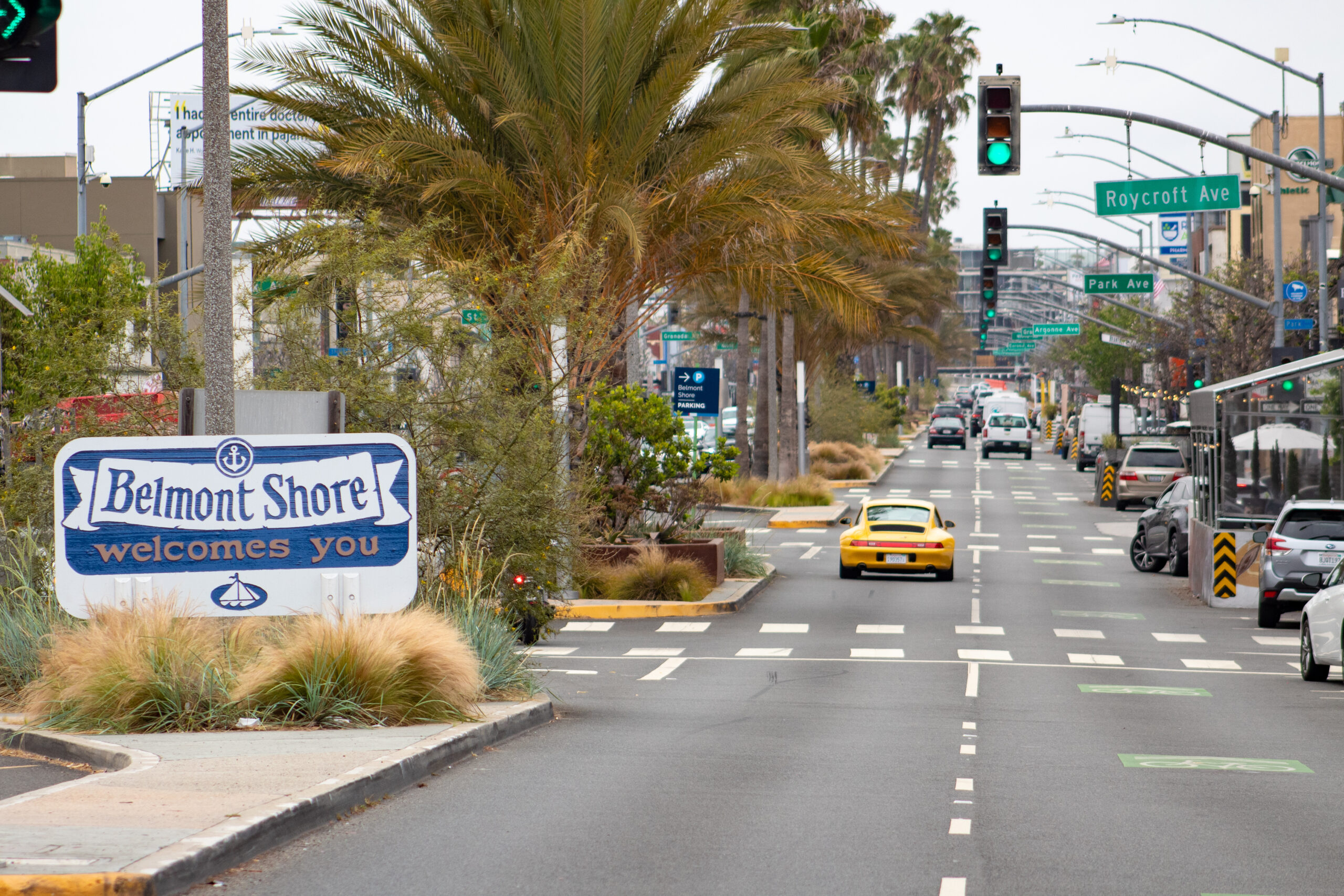
Today’s Belmont Shore neighborhood is one of the city’s main attractions. With over 250 businesses that provide shopping, entertainment, food and drink, the one-mile strip on 2nd Street gives visitors plenty to do, just like it was imagined over 100 years ago.
Like most of Long Beach, Belmont Shore began taking shape in the early 1900s. Before it became Long Beach, the area was known as West Naples. It became part of Belmont Heights in 1906. Belmont Heights was The City of Belmont for a year before voters reversed that decision and joined the city of Long Beach around 1910.
Belmont Shore as it is known today didn’t begin until the 1920s, when a dredging project changed the landscape and allowed homes to be built along the shoreline. Newspaper advertisements said, “Long Beach had no residence beach— so we’re making one,” as it invited Los Angeles residents to invest in the area. Unlike the rest of Long Beach, Belmont Shore was designed to have homes on the sand— no need to make your way down the bluff to access the water.
As the Roaring 20s began to define itself across the country, Belmont Shore became the place to be for locals. Dinners and parties hosted by local residents— in their homes or in the Belmont Shore Club— were regularly written about in local newspapers for the next decade.
The 1930s were more challenging for the neighborhood. Long Beach was one of the hardest hit areas during the 6.4 magnitude earthquake on March 10, 1933. Despite the earthquake’s damage being quickly repaired with funds from FDR’s New Deal, Belmont Shore was regularly damaged by its main attraction— the ocean.
High tides would regularly flood the area, causing extensive damage to residents’ homes, yards, and oceanfront businesses. That damage was extended by the extremely rare tropical storm that hit the area in 1939. Enter the retaining walls on E Ocean Blvd. The wall that currently separates Ocean Blvd from the Granada Beach parking lot was first put in place as an effort to prevent flooding of the area.

The final piece of the puzzle that effectively finished the “residence beach” once imagined in the 1920s was the installation of the breakwater in 1949. Regular flooding and water damage was effectively curbed, creating a calm beach.
Without the strong ocean currents, Long Beach also lost its surf scene. But Belmont Shore managed to thrive. Just like it did at its early beginnings, Belmont Shore maintained its allure with the growth of business on 2nd Street.
Many of the original buildings and businesses have come and gone, but some remain. The police station and Engine Co. #8 Fire station that were built in 1929 still stand today. The Belmont Health Club was first opened in 1929 as the Belmont Theater. It suffered major damage in the 1933 earthquake, but after 16 years, it was repaired. It served as a theater until 1978, when it became what it is today, the Belmont Health Club.
Another long-standing business, Legends Sports Bar, currently resides in what was once a Safeway Market. After 20+ years, the location became a Polynesian restaurant in 1950, known first as Lenali Cafe, but later changed to Don May’s Lelani Hut. As of 1970, Legends Sports Bar took over the location, creating its own legacy as the first modern sports bar in America.
Today, Belmont Shore maintains that sense of beach community while also connecting visitors to long standing traditions. Every year, Belmont Shore is home to the Chocolate Festival in February, the Classic Car Show in September, and the Christmas Parade in December. This summer, the community will participate in the Long Beach Bike Month and it will also host 3rd Thursday nights, where live music and local art will be on display on the 2nd Street sidewalks.





